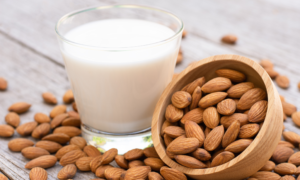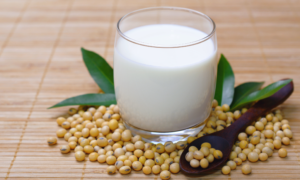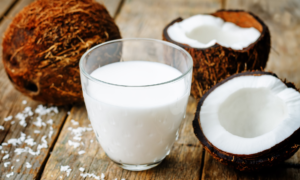Market is currently flooded with so many milk options moving beyond the usual cow’s milk. Almost all of us have grown-up on it but with rising health concerns, many people are now looking towards other milk options such as soy and almond. But how does one know which is the best milk option for them? Is soy milk healthy? Is oat milk better? Is coconut milk safe to use? Is Almond milk the best option for health conscious?
Standing in the milk aisle in the supermarket or faced with so many alternative options on the app, surely you all are confused about which one you should pick and why? So we asked known nutritionist and lifestyle consultant, Seema Singh to help us decode different milk options and tell us which is the healthiest. Here’s what our Health Expert has to say.
Before You Choose, Here’s What you Must Know
When deciding between cow’s milk and its alternatives, such as almond, soy, rice, and coconut “milk,” it’s important to consider your specific needs. Each type of milk has its own set of advantages and disadvantages. Some are higher in protein, while others may contain more calories.

If you have dietary restrictions or allergies, you may want to consider almond, soy, rice, or coconut “milk” as alternatives to cow’s milk. Oat milk is also another option to explore.
It’s important to consider your diet, health, and taste preferences when choosing the right milk for you. Whole milk is high in protein, fat, and calories, so be mindful of your choices, particularly with whole dairy and full-fat coconut milk. Opt for unsweetened versions to avoid excess sugar. Understanding the nutritional values of different types of milk can help you make an informed decision.
Milk and milk alternatives
Cow’s milk
It’s crucial to understand that cow’s milk comes in different varieties with varying fat percentages and calorie counts. Whole milk has the highest fat content, but is equally abundant in proteins and calcium. Low-fat milk has a much lower calorie count, but also contains fewer nutrients such as vitamins E and K.
It’s important to remember that individuals with lactose intolerance should be cautious about consuming cow’s milk. Cow’s milk also has rising ethical concerns surrounding it with rising consciousness about veganism.
Almond milk

It is made from ground almonds and filtered water. It may also contains starch to maintain the thickness and shelf. Almond milk is good for weight loss as it has lesser calories and has no saturated fat.
Almond milk is suitable for people suffering from lactose allergy. While opting for almond milk always remember that it’s not a good source of protein, calcium and calories.
Soy milk

Made from soybeans and filtered water, Soy milk is perfect for those who are lactose intolerant. It has less cholesterol, saturated fat, and fewer calories than cow’s milk. But, Soy Milk provides a good amount of protein and potassium.
However, the issue with soy milk is that most soy comes from genetically modified plants, which is a major concern. Additionally, it has low concentration of calcium in it.
You might also like to read: Here’s why you should switch your daily cup of chai for some herbal tea
Rice milk

In rice milk, you may find starch used as a thickening agent. It a good option for people with allergies to milk, soy, and nuts. However, it’s important to note that rice milk is low in protein and calcium. Additionally, rice has been found to contain higher levels of inorganic arsenic, which can cause a health risk to infants.
The Food and Drug Administration (FDA) and the American Academy of Paediatrics recommend focusing on variety of foods rather than relying heavily on rice and rice products for infants, children, and pregnant women.
Coconut milk

It’s safe for people with nut allergies to consume coconut milk, which contains a higher amount of fat but no protein.
Some individuals may experience digestive issues due to the inclusion of carrageenan in the coconut milk.
Things to consider while choosing milk options:
It’s important to understand that just because something is plant-based doesn’t automatically mean it’s healthy. When choosing dairy alternatives, always check the labels for added ingredients or other factors that may affect the healthfulness of the food.

Watch out for added sugars, starch, thickeners like carrageenan, added flavoring, preservatives, lack of nutrients and minerals, and lack of protein. While many products can mimic the taste of a food or replace a dairy product in baking, make sure you’re still meeting your nutritional needs.
To maintain a balanced diet, consider incorporating cow’s milk or soy milk into your routine. Go for fortified options to ensure you are meeting your daily nutritional needs and aim for well-rounded food combinations to prevent any deficiencies.
So now you know all about different milk options, so armed with this Expert insight from ace Nutritionist you can make the best, informed decision for yourself.
Also Read: 4 PM Hunger Pangs? Fitness Expert shares 5 easy-to-make, tasty & healthy snacking recipes
Also Read: 5 Homegrown women-led jewelry brands we found on Karisma Kapoor’s Insta
Meet our Guest Expert: Seema Singh, is an Award-Winning Nutritionist, Dietitian and Lifestyle Consultant. She has an experience of more than 23 years, where she has been associated as the Head of the Clinical Nutrition department at prestigious hospitals include Fortis Hospital, Artemis Hospitals, Alchemist Hospitals, Moolchand Hospital, Apollo Hospitals and AIIMS. She has also authored a book called, Hormonal Harmony.
